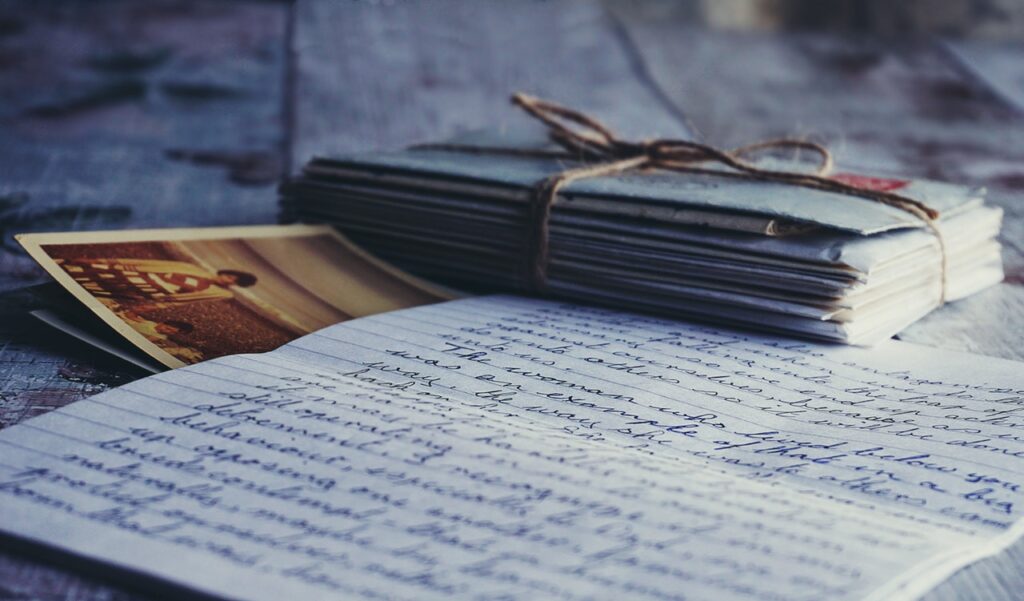| Between the ups and downs of the COVID-19 pandemic and the political tension, the past several months have been especially stressful. There are many ways that people handle stress. Some make To-Do lists. |
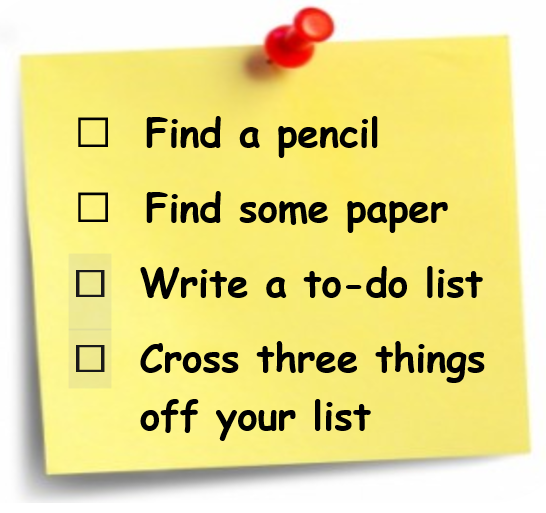
| For instance, what does one do with old (clean) socks? You know the ones… the dryer has eaten the mate or the elastic has lost its stretch. Below are some ideas of what you can do with socks. Not only can you enjoy some of these projects, beautify your home and/or enlist the aid of any children you may have lounging around the house feeling bored, these projects are a good way to reuse old socks. Thank you to Megan Willett and Business Insider for the post on 61 Things You Can Do With Your Old Mismatched Socks. Two that I found particularly interesting were the No-Sew Sock Puppy and the No-Sew Sock Face Mask. |

| We live in trying times. Even though businesses and restaurants are slowly opening, many people feel quite alone and isolated from the world. Find a phone buddy. Make yourself a To-Do list and share it with your phone buddy. Did you check off at least one thing on the list? Fabulous! Share it with your phone buddy. If that person is not available, tell your cat or your dog or look in the mirror and tell yourself. Celebrate your accomplishments. |
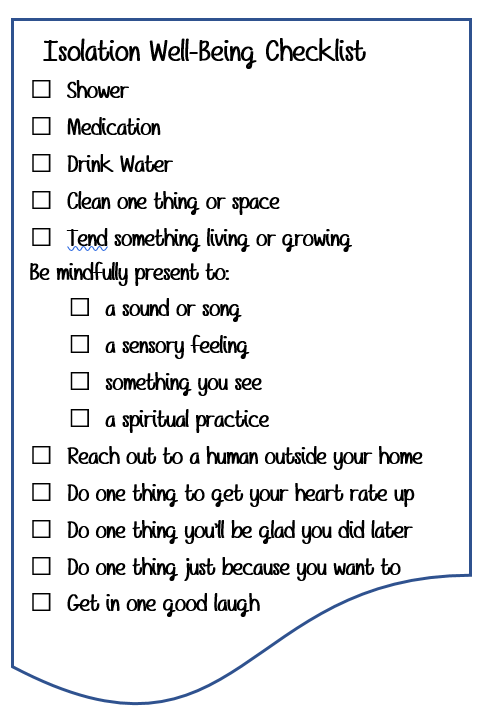
| When you have taken time to decompress and replenish your spirit, learn about the multiple ways that we can all work for social justice and change in our world. But, most importantly, be gentle with yourself. Stay well, stay safe and stay home if you are able… and, if you are one of the many who must go to work to or who chooses to volunteer to keep us safe, healthy, fed, informed or otherwise (relatively) sane, thank you. |
Wishing is a good thing! It creates a vision of what we’d like for the future. Often the vision motivates us into action to make it come true. But the tricky part about a wish, compared to a goal, is sometimes we want our wish to magically happen without our taking action. Can you relate?
Here are some examples of Wishful Thinking that might be contributing to the clutter in your home:
The clothes you wish you could get into two or three sizes down.
The workout equipment you wish you would use.
The craft projects you wish you’d have to time to work on.
The second home you wish you could buy.
Charitable shops have been closed for some time due to the pandemic, and now that they’re opened, they are inundated with goods. Some people are reluctant to donate to charities for fear their items will be thrown in the trash. I’ve been told by Goodwill workers that they are storing items in trailers, however that statement is unverified. Another option for items you wish to sell or give away for free are websites like Freecycle.org and CraigsList.com, or local pages on Facebook Marketplace. Since summer is here, you can find ways exchange items with social distancing.
Wishful Thinking can be shifted to Realistic Thinking. If you have trouble getting started, consider the help of a professional organizer. Many are doing virtual organizing and can help you shift your thinking so letting go is easier. YOUR WISH FOR A CLUTTER-FREE HOME CAN COME TRUE!

While sheltering-in-place we’ve been spending a lot more time baking. And wouldn’t you know: Stressed Spelled Backwards is: Desserts!
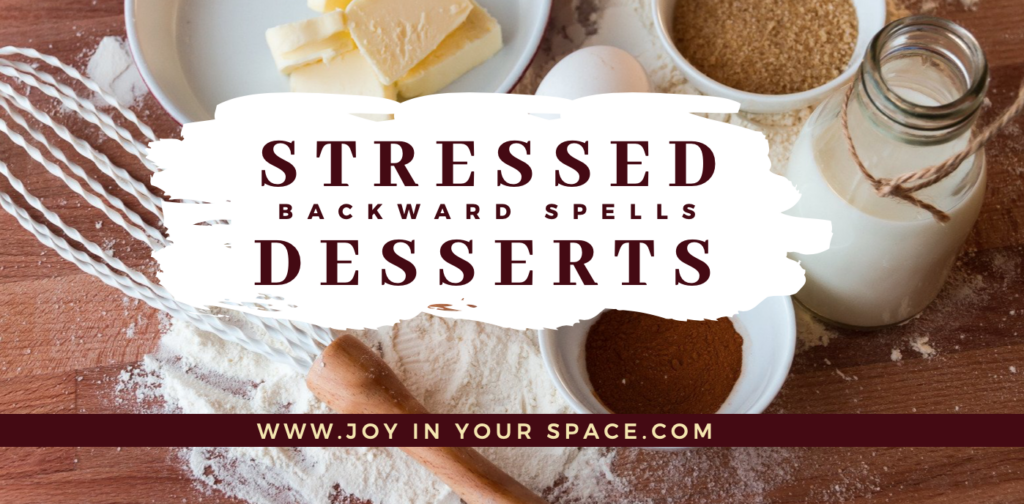
I saw that catchy phrase after delivering my 5th batch of muffins in April. To avoid gaining the dreaded Covid-15 (think Freshman-15) I delivered Tupperwares to my neighbor, who appreciates my zero-sugar recipes.
With my last delivery of cranberry-sweetened pumpkin millet muffins, I wrote “sorry for dumping my stress-baked goodies on your doorstep.” She texted back “TY” with a link to “Stress-baking is a real thing!”
My 3 favorite therapeutic benefits to baking:
This “proof of progress” is where I want to focus.
I don’t know about you, but I am:
• losing a sense of what day it is
• not as productive as I was before Covid-19
• feeling less accomplished despite feeling almost as busy
So I reflected on the tools I used before Covid-19:
Here’s why I’m returning to these habits:
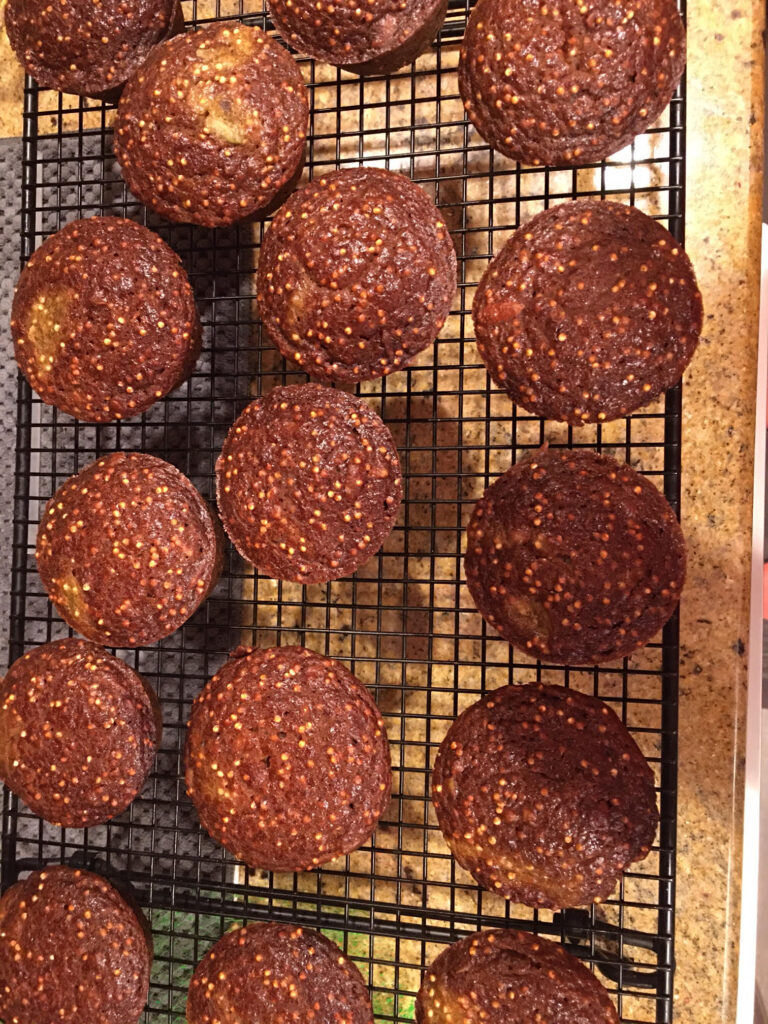
I can’t take credit for figuring out…stressed spelled backwards is desserts!
A recent RieOrganize! poll on Facebook came up with the following: Stay at home. Boredom. Facebook. Zoom meetings. Gratitude for front line workers. Frustration about having to wear a mask. Death. Telecommuting. Homeschooling. Social isolation.
Until recently, I knew of only a handful of friends who were dealing with COVID-19. Most were friends who live out of town or who were dealing with their friends/family members who were dealing with the virus. Yesterday, I was told that a friend is in the ICU with novel coronavirus. While we were not close friends, we did keep in touch over the 30+ years that I’ve known him and his husband.
What I realized today, however, was how much I did not know about them. For instance, who is my friend’s next of kin? My immediate answer would be, of course, his husband. But his husband died last week of a non-coronavirus-related illness. I don’t know if he has a health care directive or, if he does, who is listed as the alternate proxy because his husband just died – or where this document is located. I know that his husband took care of most of their financial, legal and daily responsibilities. I don’t know who will be responsible for all of that now and, more importantly, nor does anyone else. Everyone is scrambling to try to figure out what to do!
While this is indeed stressful and sad, I have to ask myself and you…
· How many of us or our friends or family members could find themselves in a similar situation?
· Have we taken care of our own medical, legal and financial paperwork? If we have, does anyone know where it is located or have easy access to it?
· Will you or someone you know find themselves sick or dying alone with no one who knows what you would want to happen medically or, if you should die, with your belongings?
According to our informal Facebook poll, not everything in our world today is discouraging, heartbreaking, disheartening or grim. Looking at some of the memes on Facebook or Instagram can make you smile or laugh out loud.
There is little wrong with cooking or baking too much, using Zoom or Facetime to be connected to friends, relatives and colleagues, binge watching Netflix or taking naps. There is much kindness, laughter and sharing. Neighbors are helping neighbors.
This can be a time of transformation – interpersonally, socially, economically and globally. It can be a time to focus on the people and things that are important in our lives.
And this is where we all come in to transform our world into a better place in which to live. Thinking about medical and financial preparedness is not high on most people’s lists of things they want to do, but, especially during this time, it is essential.
First, we should examine our own paperwork. How prepared are we? Then, we should take a look at our contact lists. Who do we know who may need help?
Few people want to talk about the possibility of being sick or dying. In this age of COVID-19, it is imperative that we do so and that we talk with those whom we love and help them to prepare as well.
This is something that cannot wait. Please take steps to ensure that someone will know what you want to happen if you are unable to speak for yourself.
Stay well, stay safe and stay home… and if you are one of the many who must go to work to keep us safe, healthy, fed, informed or otherwise (relatively) sane, thank you.
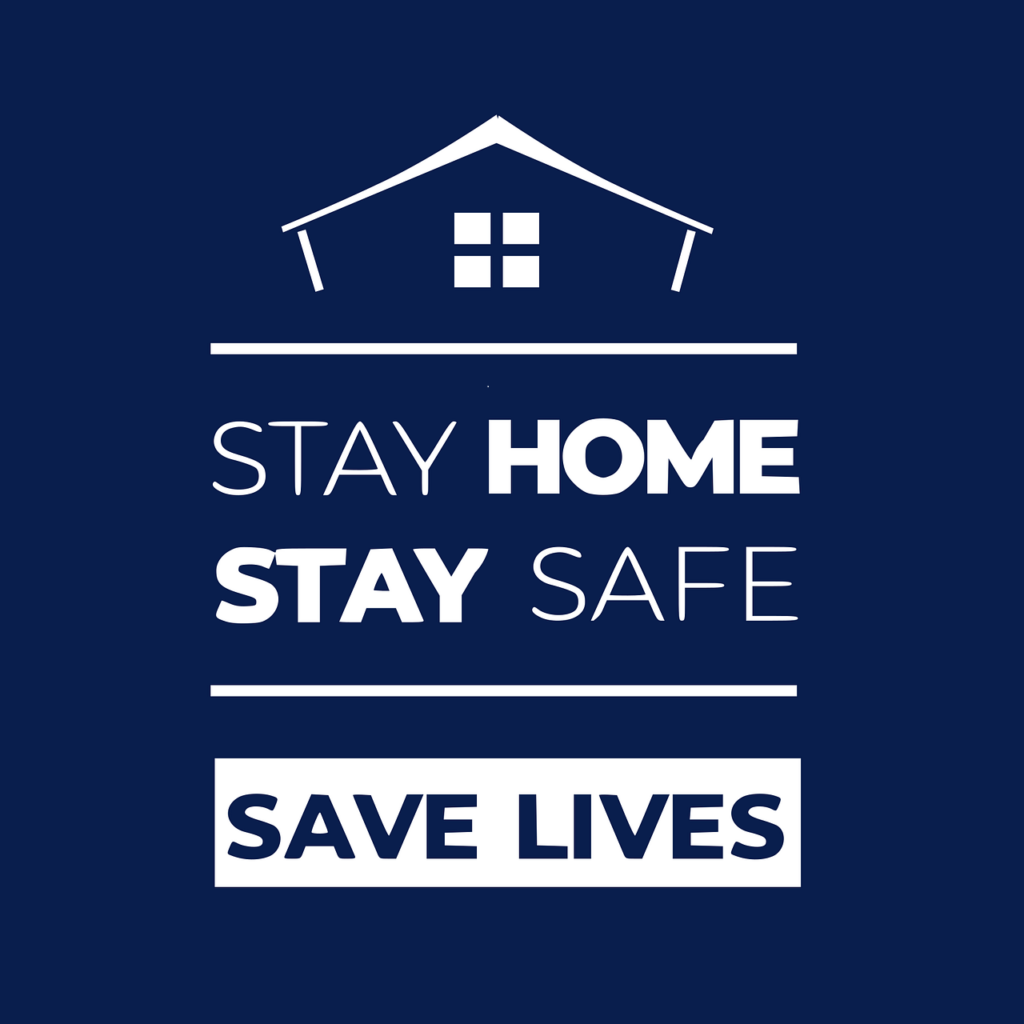
First and foremost, our thoughts and prayers are with those who have contracted this virus. We wish you a speedy recovery. For the rest of us, we face several weeks of home confinement. I don’t know about you but when I stay home for longer than one day, I tend to become lethargic and unmotivated. This time I’m determined not to let that happen. Here’s my plan of action:
Sentimental objects are one of the most challenging categories for professional organizers to help clients with. This is especially true with objects related to family history, such as:
Photographs,
Newspaper clippings,
Family history documents (letters, journals, diaries, invitations, etc.),
Education related (book reports, college papers, graduation diplomas, etc.),
Civil records about family members (marriage records, immigration records, birth/death certificates, etc.)
Photos, diaries, papers, trophies…these are all critical elements of your family legacy. They tell the story of important family members, and are the fabric of what binds families together. Personally, I am not an advocate of throwing this all away. On the other hand, how can anyone benefit if these materials are stashed away in the attic, basement, or closet?
The first step to any family history project is taking an inventory of what you have. Even if your project is simply tidying your family history boxes, you will be happy you did it. And I promise, your children will thank you!
Take some time to go through each box carefully and understand what is in them. It’s almost always the case we find things we had completely forgotten about. And it’s not at all uncommon to find objects we thought were lost. Once you know what you have, it will be much easier to figure out what to keep, and how to organize it all.
One complaint I hear frequently is that people don’t really know what to do with these materials. They accumulate and accumulate, taking up more room than you ever would have wanted. The fear of the materials being damaged, and frustration that nothing productive is being done with them, causes most people to feel anxious, along with a good measure of guilt.
Organizing family history materials allows us to honor family members and declutter. As I mentioned, I am not a fan of throwing these materials away. BUT, you’ll be surprised how much space is being taken up by duplicates, damaged papers/photos, old frames, and photos of people you don’t know—all of which can all be thrown away.
And watch out for newspaper clippings! Newspaper paper does not last. Not only that, it can damage other materials it comes into contact with.
The advent of online publishing has made printing books in small print runs very affordable. Imagine having a book of all your parents’ correspondence, and giving a copy to each of your children. Or imagine assembling all the civil records about your ancestors so the whole family can have a richer understanding of its roots and history. All you need is a scanner and a little patience. If you don’t have the time, there are many scanning services which can do this for you. The Association of Professional Photo Organizers is also a great place to find someone locally who can do this.
Once scanned, it’s time to select an online book publisher. There are many to choose from. Two of my favorites are Blurb and Mixbook. Mixbook in particular has some great layouts just for family history projects. Be sure to wait for a sale! Both these sites frequently offer significant discounts.
It probably won’t surprise you to learn that these books become instant family heirlooms. They make terrific gifts for important birthdays or around the holidays.
If you run into a hiccup while organizing, scanning, or making your book, feel free to give me a call. I’m always happy to answer questions. Good luck with your family history project!
